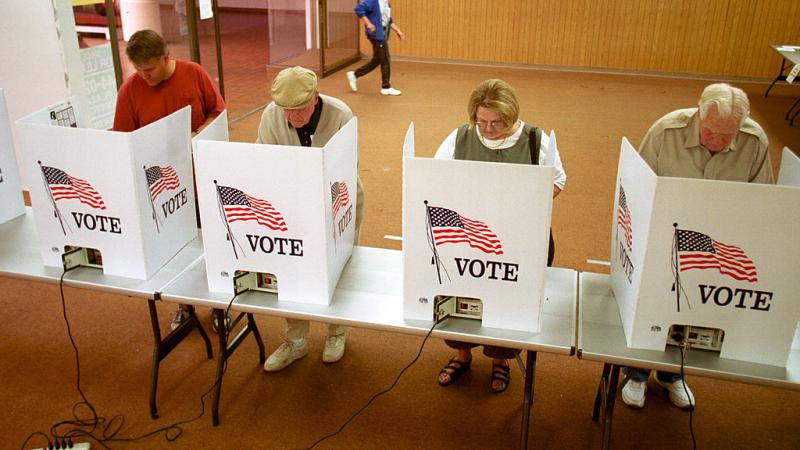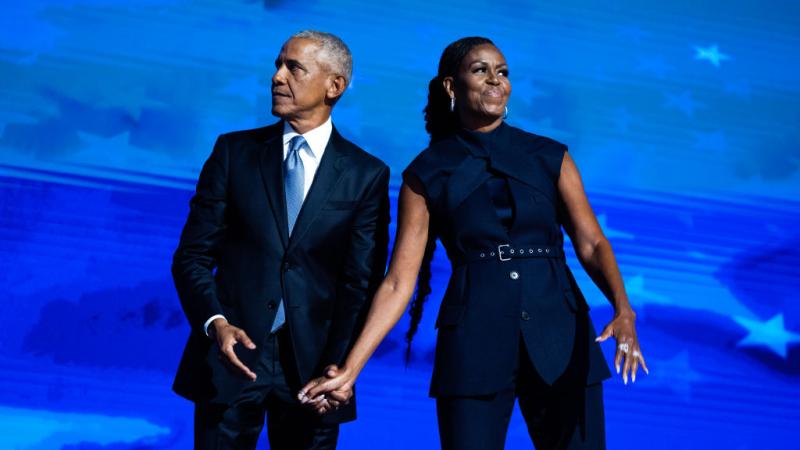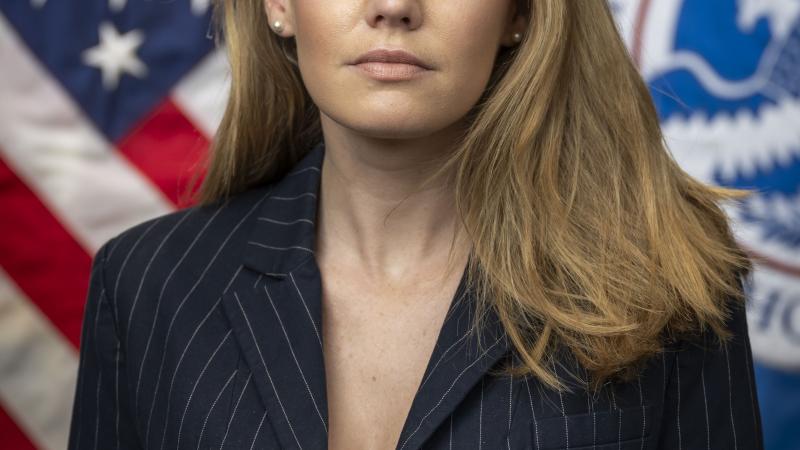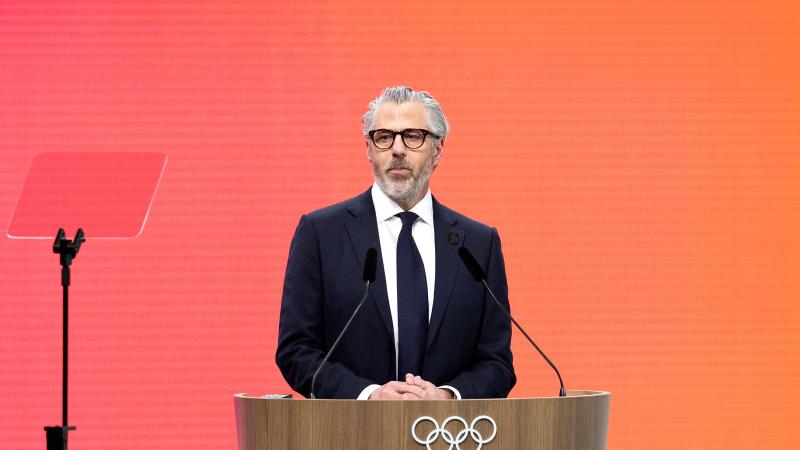Democrats push overseas voting, but Republicans sound the alarm over fraud concerns
In a razor-thin race, the millions of potential overseas voters might decide the outcome of the election.
As Democrats are pushing overseas voting in the November election, Republicans and election integrity advocates are sounding the alarm over possible fraud that could occur with absentee ballots sent from other countries.
With the Democratic Party pushing for more overseas absentee ballots in a close presidential race, Republicans and proponents of election integrity are concerned about the verification of overseas voters and their ballots.
Military and overseas voters are allowed to vote from outside the U.S. due to the federal Uniformed and Overseas Citizens Absentee Voting Act (UOCAVA). To apply for a UOCAVA ballot, a voter must provide a Social Security number and either a state-issued driver’s license or identification number, which are used to verify the voter's identity.
In August, the Democratic National Committee announced that it was investing in "Democrats Abroad" for the first time in a presidential election cycle. There are about 9 million Americans abroad, about 8% of which are registered voters from the 2020 election. An estimated 6.5 million Americans living abroad are eligible to vote, according to Democrats Abroad.
The DNC asserts that there are about 1,625,136 Americans living abroad from the battleground states of Arizona, Georgia, Michigan, Nevada, North Carolina, Pennsylvania, and Wisconsin. By way of perspective, in the 2020 election, 44,000 votes from Arizona, Georgia, and Wisconsin won the White House for Biden. The get-out-the-vote campaign received more than $450,000 from the DNC and private donors, Politico reported.
Democrats are looking to significantly increase the amount of cast UOCAVA ballots.
In 2020, there were 913,734 UOCAVA ballots counted. That total jumped up from 2016 when 671,243 UOCAVA ballots were counted. A total of 38 states and Washington, D.C., allow Americans who have never resided in those locations to cast absentee ballots there if they meet certain criteria.
UOCAVA ballots can be returned by email in 25 states and Washington, D.C., while 10 states allow those ballots to be returned through an online portal.
The UOCAVA ballots could have a significant impact on a close election. The RealClearPolitics polling average shows Harris up 2.2 points over Trump nationwide, with the vice president at 49.1% and the former president at 46.9%.
Former President Donald Trump last month raised concerns over UOCAVA voting.
“The Democrats are talking about how they’re working so hard to get millions of votes from Americans living overseas. Actually, they are getting ready to CHEAT! They are going to use UOCAVA to get ballots, a program that emails ballots overseas without any citizenship check or verification of identity, whatsoever. (Foreign interference?),” Trump posted on Truth Social.
“Remember they say, we have the ‘most secure elections in history,’ and anyone can get a ballot emailed to them! They want to dilute the TRUE vote of our beautiful military and their families, who Comrade Kamala has totally disrespected and abandoned. Republicans must act to stop them from stealing our military votes. WATCH! Remember, IF YOU VOTE ILLEGALLY, YOU’RE GOING TO JAIL.”
Mike Benz, executive director for Foundation for Freedom Online, posted on X last month about the various forms of fraud that could occur this election cycle, including with UOCAVA voting.
“[N]ot enough to have fraud from mass mail-in ballots, not enough fraud from unsecure electronic voting machines, not enough fraud from no voter ID, not enough fraud from speedrunning illegals here, now they have up to 1.6 million mystery ballots from foreign countries flooding in,” Benz wrote.
Phill Kline, director of The Amistad Project and former Kansas attorney general, told Just the News on Friday that while “every American overseas ought to have the ability and right to vote,” how the system currently works is “not the way to do it.”
In some states in 2020, rules were unlawfully changed and election workers were told “to consider all signatures to be valid,” and “not consider” if absentee ballot signatures match the voters’ signatures on file, Kline said.
In past elections, Democratic election officials in the urban cores in swing states “willfully violated the law” when it came to ensuring ballots are managed correctly after voters return them, he added.
In 2020, Kline and others “tried to preempt some of this” by going to court before the election, but the “courts found we didn't have standing,” saying that “harm hasn't occurred yet,” and to “come back,” he said. However, “after the harm occurred,” there is “no remedy,” Kline explained.
Kline noted that there was online voter registration in Michigan in 2020, where only a Social Security number and a driver’s license number were required. However, those numbers can be purchased on the dark web, he said. “With online registration systems,” there is “great vulnerability,” Kline said. Concerns over UOCAVA vulnerabilities have led to a lawsuit in the battleground state of Pennsylvania.
Five Republican congressmen filed a lawsuit against the Pennsylvania secretary of the commonwealth over allegedly lax requirements for military and overseas voters.
Pennsylvania GOP Reps. Guy Reschenthaler, Dan Meuser, Glenn “G.T.” Thompson, Lloyd Smucker, and Mike Kelly filed a lawsuit in federal court on Monday against Republican Pennsylvania Secretary of the Commonwealth Al Schmidt and Deputy Secretary for Elections Jonathan Marks over a directive regarding the verification of the eligibility of military and overseas voters.
The Pennsylvania Department of State's directive states "that Pennsylvania and federal law are clear that voter registrations may not be rejected based solely on a non-match between the applicant’s identifying numbers on their application and the comparison database numbers." The lawsuit argues that the directive violates both UOCAVA and the Help America Vote Act of 2002 (HAVA).
“The Commonwealth’s practice is an illegally structured election process which makes Pennsylvania’s elections vulnerable to ineligible votes by individuals or entities who could purport to be UOCAVA-eligible, register to vote without verification of identity or eligibility, but receive a ballot by email and then vote a ballot without providing identification at any step in the process,” the lawsuit argues.
The congressmen ask the court to order the secretary to direct county election officials to verify the identity and eligibility of individuals applying for UOCAVA ballots. The legislators also request that the judge order the county election officials "to segregate UOCAVA ballots returned for the 2024 election until the identity and eligibility of the applicant can be verified as required under HAVA and state law." A hearing date has been set for Friday, October 18, 2024.
The Facts Inside Our Reporter's Notebook
Links
- Uniformed and Overseas Citizens Absentee Voting Act (UOCAVA)
- Democratic National Committee announced
- according to Democrats Abroad
- Politico reported
- 913,734 UOCAVA ballots
- 671,243 UOCAVA ballots
- allow Americans
- returned by email
- RealClearPolitics polling average
- Trump posted
- Foundation for Freedom Online
- Benz wrote
- Five Republican congressmen
- filed a lawsuit
- federal court on Monday
- a directive
- directive
- the lawsuit reads
- legislators also request















